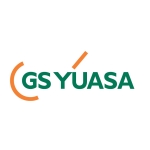GS Yuasa Lithium Power Completes Preliminary Design Review of New Scalable Battery For Spacecraft
ROSWELL, Ga.–(BUSINESS WIRE)–GS Yuasa Lithium Power (GYLP) announced today the successful completion of the Preliminary Design Review (PDR) for a new scalable small form factor battery design. With PDR complete the battery design will now move into the critical design phase.
GYLP’s design integrates the recently qualified LSE12x Lithium-ion Cell developed by GS Yuasa Technology LTD (GYT) and seeks to align with smaller spacecraft, including those with high power requirements and those supporting human rated missions. The flexible approach accommodates 16 to 96 cells (720Wh to 4320Wh nominal) and can be electrically configurated to support both low and high voltage bus applications.
“GS Yuasa leads the industry with more than 4.4MWh of Lithium-ion energy storage flown in space,” said Curtis Aldrich, President of GS Yuasa Lithium Power. “Our customers demand outstanding performance, reliability and value. With the introduction of a 12Ah cell and GYLP’s forthcoming scalable battery design, we’re bringing the attributes responsible for our success in medium and large spacecraft to a solution that can be optimized for smaller spacecraft.”
Cells and batteries will be fully configuration controlled and built to AS9100 Aerospace Quality Standards with an auditable manufacturing and change record. This approach mitigates the need to repeat the full qualification and life performance test for each new production lot. End-users can verify the materials and processes employed remain consistent lot to lot. This provides our customers a significant reduction in program testing costs compared to other similarly sized solutions.
The next milestone will be the completion of the Critical Design Review (CDR) which will address the battery configuration identified for our internal qualification program. The qualification model is a 72-cell configuration wired as an 8s9p battery (30Vnom 108Ah, 3240Wh). This configuration incorporates all manufacturing and inspection processes present on smaller and larger configurations. A full qualification test suite is planned including environmental survivability.
The design approach for the 72-cell battery seeks to optimize the volumetric packing efficiency while providing robust survivability for the majority of the available launch vehicle dynamic environments. Thermally the battery is designed to reject heat by conduction through a baseplate tied to the host vehicle’s thermal management system. Connector interface is flexible and can be tailored to match each vehicle’s specifications. Battery monitoring and available telemetry will also be tailorable with options for temperature monitoring points, individual cell or mid and full stack voltage reporting, as well as redundant heater options.
Fault tolerance and anomaly mitigation have also been carefully considered. In the unlikely event of a cell fault, each 8-cell string can be isolated in the battery through a commandable relay. Using the battery telemetry, the satellite operator is able to detect the event and issue a command to clear or isolate the fault.
The battery design includes provisions to mitigate propagation of a thermal runaway event and to collect and direct effluent material. Although a thermal runaway event is extremely unlikely, it is best to manage the effect on both safety and continued operation. For human rated missions subject to the requirements outlined in JSC20793, such provisions are mandatory. GS Yuasa Lithium Power has recently been awarded a US patent for systems and methods relating to effluent containment.
Contacts
For additional Information, please contact:
Tom Pusateri – Dir. Business Development
GS Yuasa Lithium Power, Inc.
1150 Northmeadow PKWY Suite 118
Roswell, GA 30076 USA
888.GSYUASA (888.479.8272)
678.892.7501 (Fax)
media@gsyausa-lp.com
http://www.gsyuasa-lp.com



